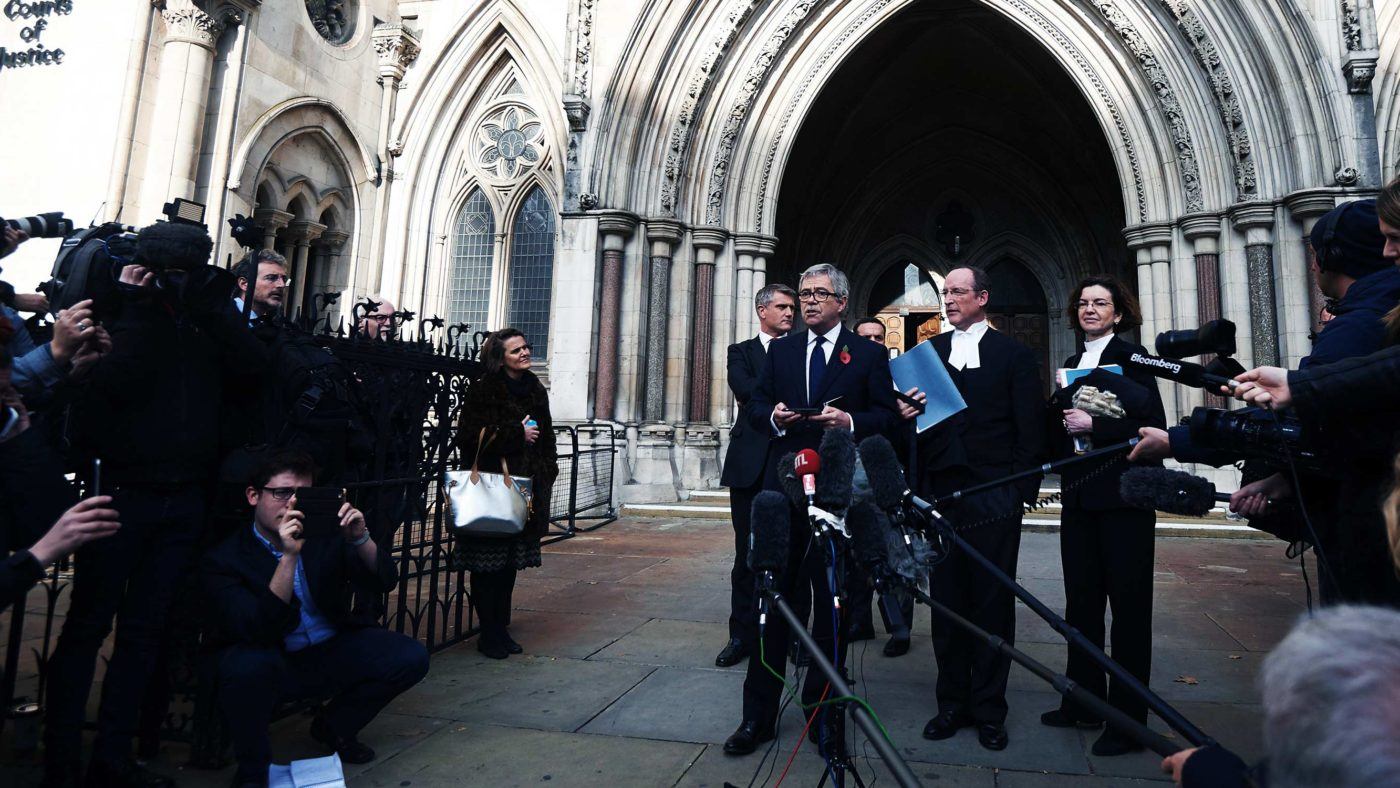There has been great excitement among the Remain camp today after the Government was told by the courts that it did not have the power to trigger Article 50 unilaterally. Lord Kerr, the author of the article in question, has even popped up to argue that Brexit is still not an inevitability.
The truth is, everyone is getting a little overexcited about this. Assuming the Supreme Court upholds the High Court’s decision, Parliament will need to give its approval to the invocation of Article 50, yes. But that does not mean that it can hold the process hostage.
The invocation of Article 50, after all, is a Yes/No deal. And the British people voted, 52 per cent to 48, for the answer to be Yes. “The Government will implement what you decide,” said the leaflet it sent to every home in the country. And the people decided.
True, Parliament has a Remainer majority. But any attempt to derail this would be greeted with scepticism from the 48 per cent and fury from the 52 per cent. (See YouGov’s finding that a hypothetical “Stop Brexit” party would gain only 25.9 per cent of the vote – high, but not high enough.)
I now fear every attempt will be made to block or delay triggering Article 50. They have no idea level of public anger they will provoke.
— Nigel Farage (@Nigel_Farage) November 3, 2016
But what if Parliament takes a subtler path? What if it attempts not to derail the Brexit process, but to seize control of it – for example by arguing that it wants to know more about Theresa May’s negotiating position, or even to have the bones of an actual deal in place? May’s negotiating strategy, after all, has been to keep as much of the details as possible private: ministers have explicitly said that they will not give Parliament a running commentary on the progress of negotiations.
In that case, however, May has a weapon of her own. If Parliament’s demands grow too exacting, she will be able to accuse them of attempting to sabotage the Brexit process.
The next step would then be to tell the country that she was not planning on an early election, and wanted nothing more than to get on with the job of government. But it is clear that Parliament cannot be trusted to enforce the will of the people. So an election must be called, pitting a competent prime minister committed to delivering Brexit against… Jeremy Corbyn and Tim Farron.
The long and short of this is that the greatest risk to Brexit’s parliamentary progress is not, and never has been, the passage of Article 50: that is a certainty, either sooner or later.
No, Brexit’s moment of peak vulnerability will come as the resistance to it transitions from trench warfare to guerrilla warfare: from the well-funded legal challenge against Article 50 to subtler yet incessant attempts to unpick it as it proceeds through Parliament.
Brexit is in danger of a death by a thousand cuts – as those who oppose it peer into every nook and cranny of the deal, point out every obstacle and pitfall. It is in the countless amendments that will be tabled to May’s “Great Repeal Bill”, the hundreds of laws and regulations that will need to be tweaked and tinkered with to accommodate Brexit’s passage – and, ultimately, in the risk that Parliament will not endorse whatever deal can be reached between Britain and Brussels.
And the problem, therefore, is that this may give us exactly what we don’t want – not the best of all possible Brexits, but the worst.
I was, as I wrote last week, a Remainer – and I still wish that Brexit wasn’t happening. But I also accept that it is happening, and that we’d better make the most of it.
This, indeed, is the split that’s happening within the Remain camp – and it’s every bit as elemental as the divide between the “open” Leavers who dreamt of trading with the world and the “closed” Leavers who dreamt of shutting up the borders.
Many Remainers think Brexit can never work – and they may even be right. But some of them have gone further. They think Brexit can somehow be undone. The logic of that position is to do everything they can to make the Brexit negotiations worse, in the hope that they will fall apart and we will subside into the grateful bosom of the EU.
In other words, there are Remainers – inside and outside Parliament – who want to fix Brexit, and there are Remainers who want to destroy it. This tension can only intensify as the negotiations proceed.


